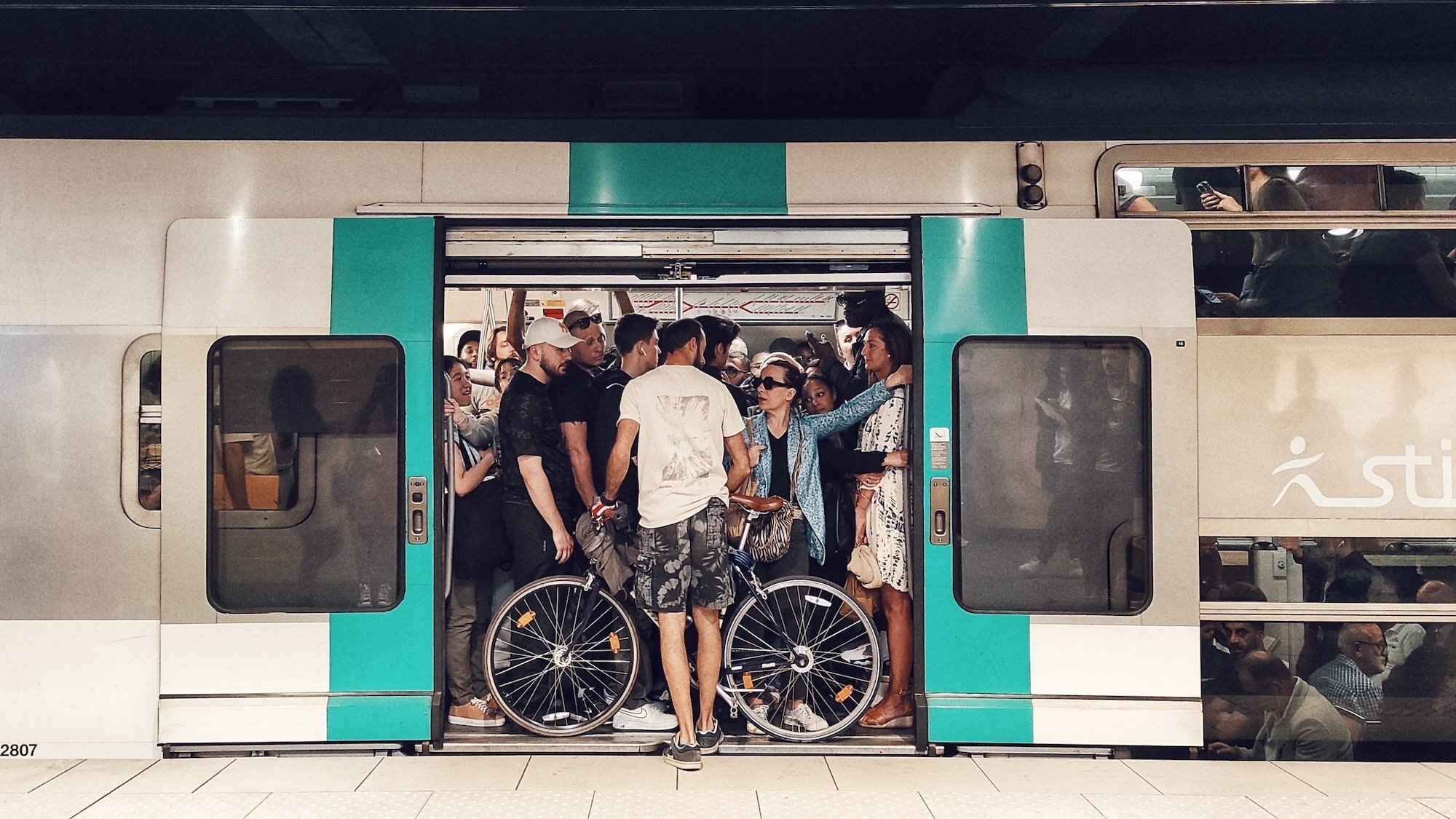Every day, millions of women in the Île-de-France region take public transportation to work, study, or simply get home. And every day, many do so with a knot in their stomach. According to the National Observatory for Violence Against Women, 80% of female users report that they "stay alert" in public transport, and more than half say they don’t feel safe, a number that rises to 81% after 10 PM.
Voir cette publication sur Instagram
This is how, at the end of October, a petition was launched on Change.org by a traveler of the RER C, demanding cars reserved for women and children. The text highlights a “constant feeling of vulnerability and concern” and calls on Île-de-France Mobilités (IDFM) and SNCF to “ensure real and visible security.” Drawing inspiration from examples abroad, the initiative proposes a pilot project, clear signage, and enhanced monitoring measures.
The petition, launched on the very day of a attempted rape in the RER C, quickly gathered over 20,000 signatures.
Voir cette publication sur Instagram
Supporters, critics… and a meaningful debate
While many women welcome the idea of a safer alternative, the measure continues to be divisive. On the side of Île-de-France Mobilités, there is no plan to create non-mixed carriages. The organizing authority prefers to focus on the so-called boa trains (completely open and meant to break isolation) as well as enhancing video surveillance, increasing the presence of security agents, and promoting the emergency number 31 17. The vice-president of IDFM, Grégoire de Lasteyrie, even clarified this Tuesday that there are currently no plans for women-only carriages.
Among the signatories, feelings are mixed between hope and resignation. Some see these carriages as a solution.
concrete solution, in the absence of a immediate change in behavior. “I take the RER every day, even late at night. I have been disturbed, sometimes attacked. Knowing that I could have an alternative wouldn’t hurt anyone,” writes a user.Voir cette publication sur Instagram
But the debate also took a darker turn. Under the petition, numerous racist comments bloomed, targeting the origin of some aggressors. This derailment was immediately called out by other women in the comments: « The problem has nothing to do with the racial backgrounds of individuals but with all men in general. We just want to stop being sexualized, objectified, and harassed all the time. The real enemy is patriarchy, not a community ».
Other signatories remind us that feminism should never be used to fuel hate. « I see racist comments tarnishing the noble cause defended by this petition. The Pelicot case, does that ring a bell? The aggressors were foreigners perhaps? » an internet user indignantly points out, while another adds: « The racism that is d& .the engagement with certain comments is horrifying. Feminism should never become an excuse for supremacist rhetoric ».
Elsewhere, it already exists (and it works)
For social psychology researcher Raphaël Adamczak, this feeling of insecurity has very real consequences. « It can lead a woman to limit her choices of residence, places, or work hours, restricting her access to employment, culture, and social life », he explains. In other words, everyday sexism in transportation reinforces gender inequalities.
Voir cette publication sur Instagram
What if France took a cue from other countries? In Japan, India, Mexico, Dubai, and even Germany, there are already women-only carriages, some of which have been around for over twenty years, and they have helped to boost the feeling of safety among passengers. These international experiences are now inspiring the petition, which requests Île-de-France Mobilités and SNCF to launch a pilot project on an RER line, featuring clear signage, increased surveillance, and independent evaluation.
Voir cette publication sur Instagram
Should we, then, reserve cars? This question sparks debate, but it mainly highlights an urgency: the need for a truly safe and inclusive public space. Because while cameras and connected trains can help, no technology can replace an ambitious prevention and awareness policy.
In the meantime, the petition keeps going. And even though the pink cars probably won't come to life tomorrow, it has at least achieved one thing: bringing women's safety back to the forefront of public debate.
